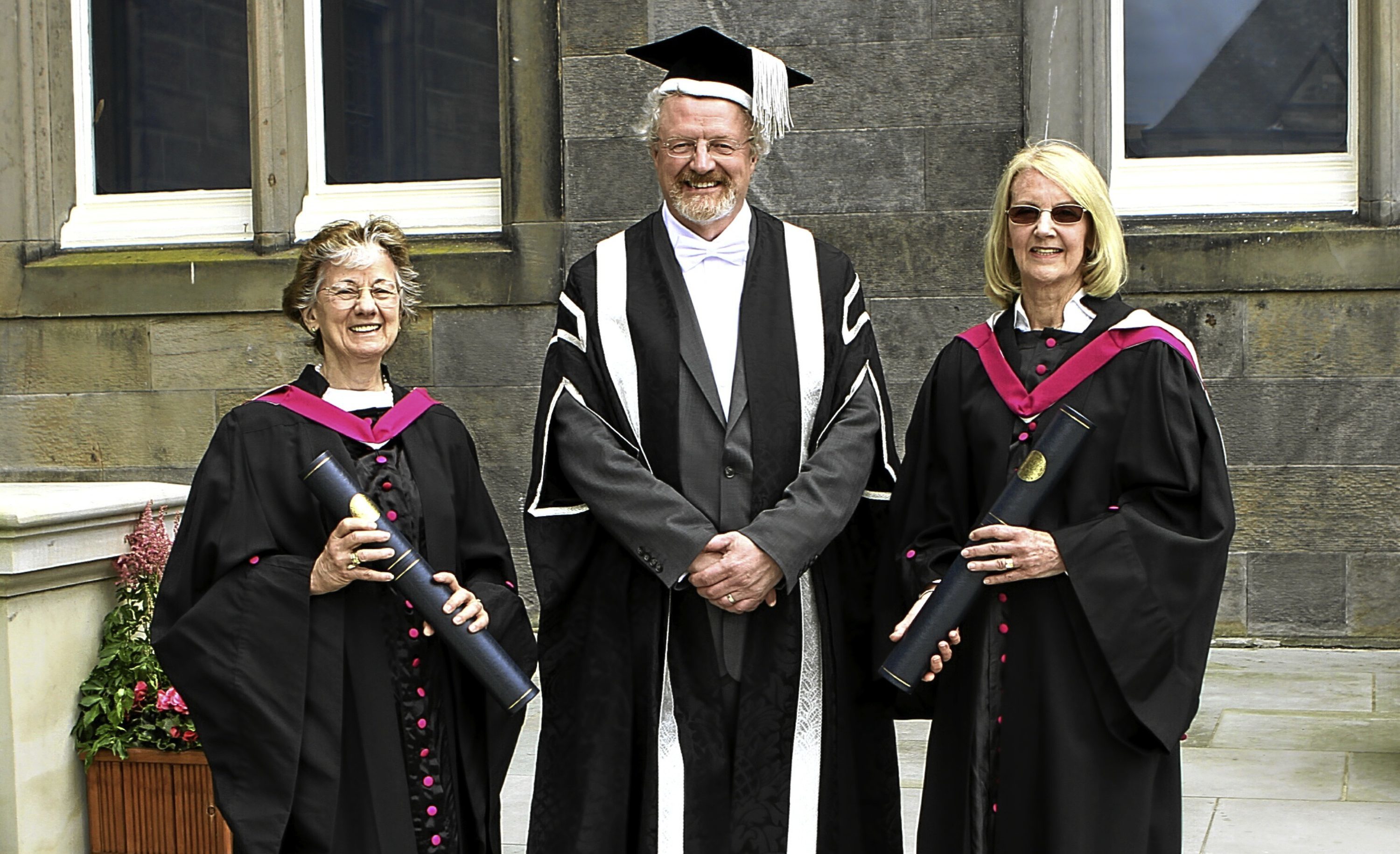World-leading scientists were recognised with honorary doctorates from St Andrews University.
As students graduated from the ancient seat of learning, honorary degrees were conferred upon Professor Rita Colwell, Professor Jean Beggs and Professor John Dudley.
Mrs Colwell’s research into the bacterium which causes cholera has been pivotal in demonstrating the importance of effective health care and water sanitation to control the disease.
In 1998 she became the first woman director of the United States National Science Foundation, and Colwell Massif, in Antarctica, was named in recognition of her polar research.
At the ceremony in the Younger Hall, Professor Anne Magurran, of the university’s School of Biology, said: “Rita Colwell is an exceptional role model for women and men scientists. She exemplifies how science can change our understanding of the world and our place in it.”
Biochemist Mrs Beggs led hugely influential work that dissected the splicing machinery in yeast with profound implications on how we understand higher organisms. She was the first woman vice-president for life sciences at Scotland’s National Academy at the Royal Society of Edinburgh.
Professor James Naismith, of the university’s School of Chemistry, said she had remained a “cutting-edge” scientist for more than 40 years.
Mr Dudley has conducted research at the interface between applied optics and the fundamental understanding of light. He proposed the International Year of Light and Light-based Technologies 2015.
Professor Andrew Cameron, of the School of Physics and Astronomy, said the year “raised awareness of the need to develop sustainable, low-cost artificial lighting for the 1.5 billion people around the world for whom night-time still means darkness”.









